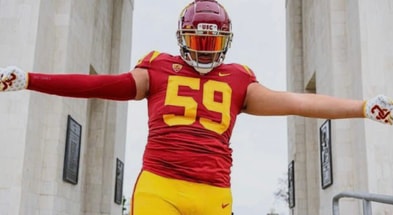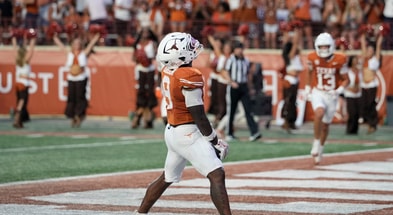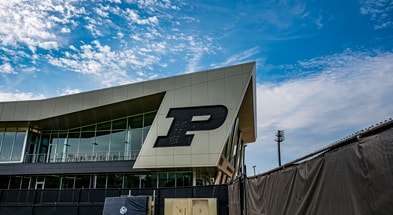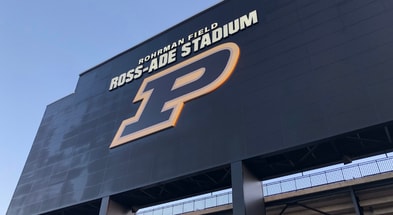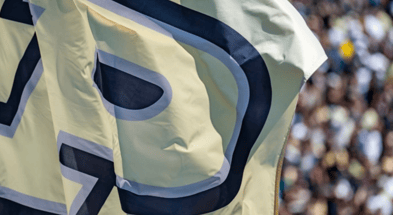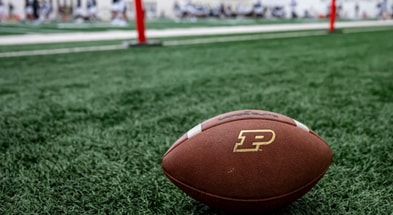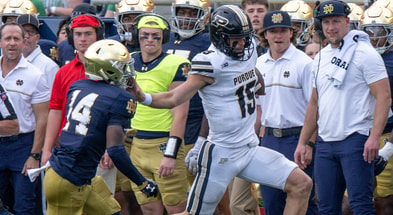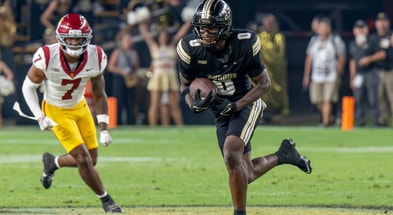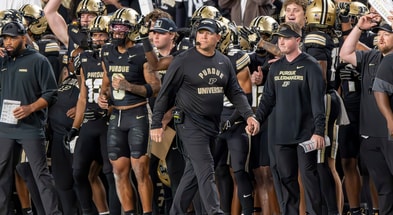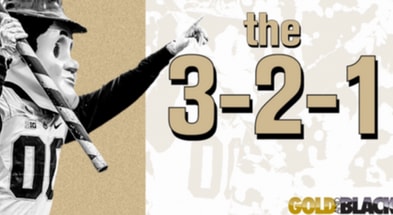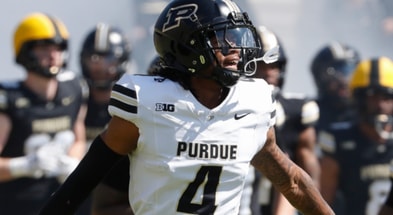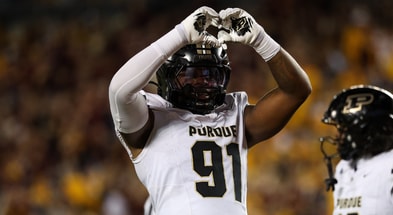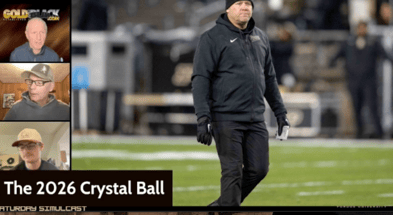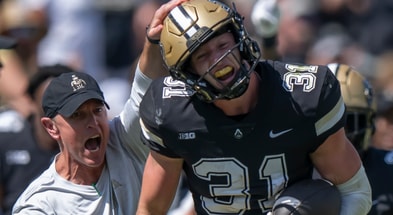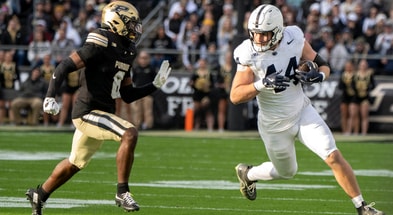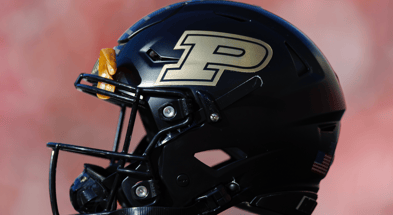Purdue utilizes new helmet communication technology in 2024
A two-minute timeout. Tablets on the sidelines. Purdue, along with the rest of college football, needed to adjust to new rule changes ahead of the 2024 season. Perhaps no change altered down-to-down football as much as the implementation of in-helmet communication, though.
After much controversy surrounding sign-stealing in the sport last season, college football adopted the NFL-style format of in-helmet communication. One player on each side of the ball can wear a helmet with a green dot, meaning that it’s equipped with a radio inside.
The cost of the technology often got cited as the primary factor for not legalizing helmet communication. Still, following last season’s controversies, it earned the green light ahead of the season.
For Purdue, Graham Harrell can communicate with the quarterback until 15 seconds remain on the play clock. On the defensive side of the ball, it’s Ryan Walters communicating with Kydran Jenkins. Once the play clock hits 15, communication gets cut off.
The move doesn’t eliminate signaling, though. Many teams will still utilize signals to reach wide receivers or defensive backs who line up far away from the player wearing the green dot. During Purdue’s season-opening win, the sideline could be noticed sending signals onto the field.
Additionally, teams nationwide needed to signal in when helmet communication technology failed. The Yellow Jackets’ helmet communication system went down in Georgia Tech’s upset win over Florida State. Because of this, both teams abandoned the radio format and went old-school. The NCAA rule stipulates that if one team’s communication system fails, the other team cannot use their helmet communication, even if it works properly.
Alabama’s season opener saw a brief delay before it became apparent that Western Kentucky’s technology would not work. So, neither team used helmet communication.
How did it fare in Ross-Ade Stadium on Saturday?
“It went okay today,” Ryan Walters said following Purdue’s victory. “There were some technical difficulties with guys being able to hear or not hear.”
The implementation of the new rule changes strategy, too. While FCS schools like Indiana State are not permitted to use helmet communication in games vs. FCS foes, they adjusted to facing Purdue.
“Indiana State did a nice job of huddling on offense and waiting until past the 15-second mark to break,” Walters said.
Top 10
- 1Breaking
CBB AP Poll
Top 25 rankings updated
- 2
Brendan Sorsby
Makes transfer commitment
- 3Hot
Isaac Brown
Flips transfer decision
- 4
Raleek Brown
Coveted transfer sets SEC visit
- 5Trending
Josh Hoover
QB transfers to Big Ten
Get the Daily On3 Newsletter in your inbox every morning
By clicking "Subscribe to Newsletter", I agree to On3's Privacy Notice, Terms, and use of my personal information described therein.
One interesting effect of the change? It allows the coaching staff to give pointers to the quarterback before the snap.
“I thought Graham [Harrell] did a nice job of communicating with the quarterbacks pre-snap and giving them clues on what to be looking for. We’ll continue to massage it, improve it and use it efficiently as the season goes on,” Walters said.
No doubt, Purdue spent lots of time experimenting and practicing with the new technology ahead of the season. While quarterback Hudson Card grew accustomed to the system of signaling after playing four seasons of college football, he felt comfortable on Saturday.
“It’s different, but at the same time I’m used to it because of how much we practiced it,” Card said. “It felt like practice, but it’s cool being able to [hear] from Graham.”
One thing remains to be seen: how will communication flow on the road in a hostile environment? A common refrain early on this season comes from away teams who struggled to hear due to crowd noise.
Purdue gets one more game at home before its first road trip of the season, a long flight to Corvallis, Ore., to take on the Beavers. Away games in Madison and Columbus will also bring plenty of hostility. Until then, Purdue will continue fine-tuning its play-calling to get everyone on the same page.
